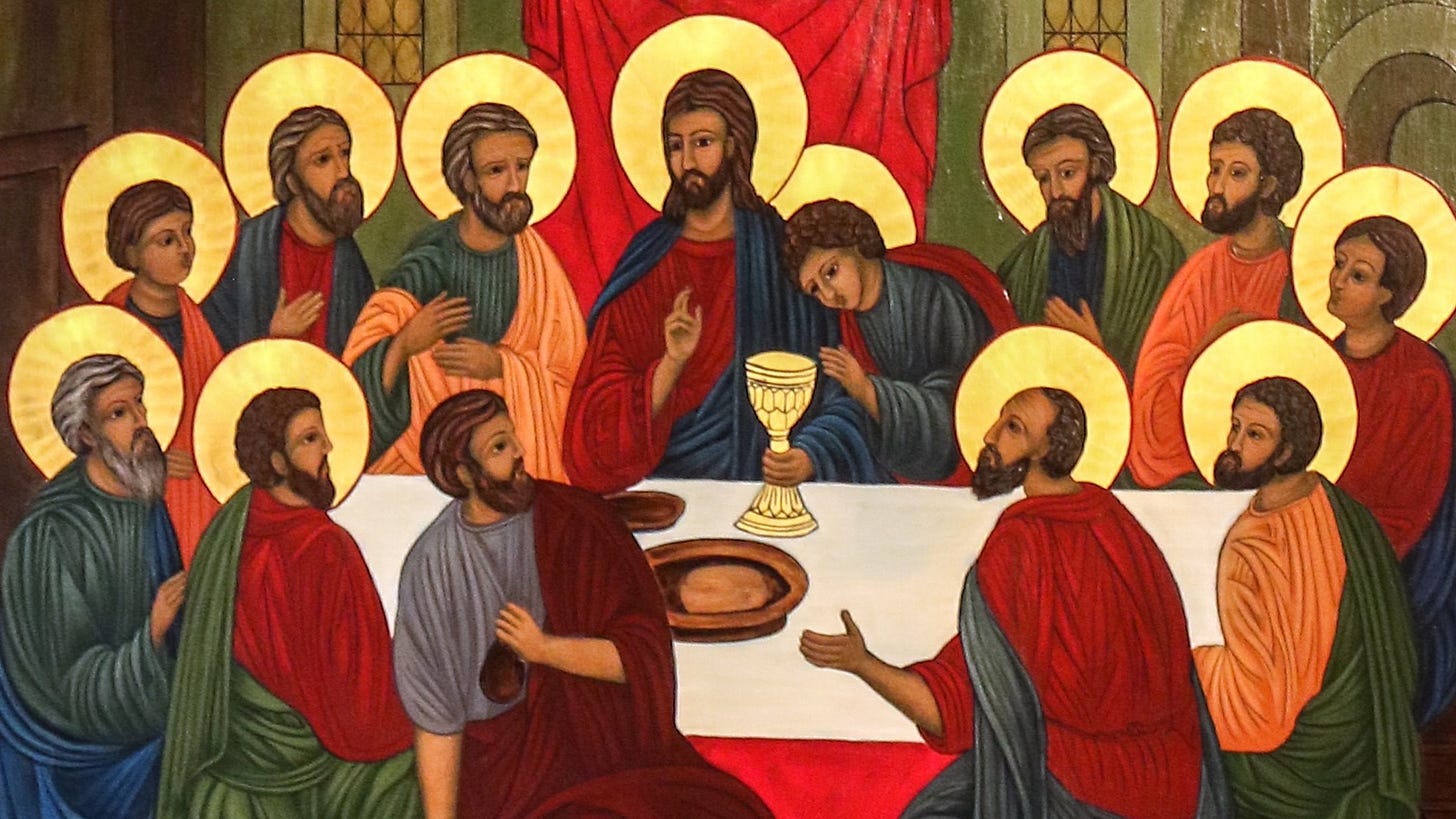How Christ’s plain words before the Cross reveal his love for the Apostles
Christ waited to speak plainly to his Apostles—so their faith would grow freely. His words revealed not only who he was, but how deeply he loved them.

Christ waited to speak plainly to his Apostles—so their faith would grow freely. His words revealed not only who he was, but how deeply he loved them.
Editor’s Notes
On the Fifth Sunday after Easter, the Church returns to John 16—which she had been reading on the Third Sunday. For more context on this passage, see here.
In this part, Fr. Coleridge tells us…
How Christ declares plainly his Divine origin, Incarnation, and return to the Father.
That the Apostles’ joy at this clarity shows the ripening of faith amid deep and enduring trial.
Why Christ gently reminds them of their weakness—even as he prepares them for coming desolation.
He shows us that true faith deepens not through sudden clarity alone, but by persevering through trial and trusting in the Father’s hidden presence.
For more context on this episode, see here.
Parting Words
Passiontide, Part III, Chapter VI
Chapter VI
St. John xvi. 16-33, Story of the Gospels, § 156
Burns and Oates, London, 1886
What is the difference between prayer before and after the Cross?
How does the power of the Apostles’ prayer continue in the Church?
How Christ’s plain words before the Cross reveal his love for the Apostles
Why Christ says ‘Have confidence, I have overcome the world’
Declaration of Our Lord’s divinity
‘I came forth from the Father, and am come into the world, again I leave the world, and go to the Father.’
These words contain a plain declaration of our Blessed Lord’s Divinity, and also of His Incarnation. The Fathers are fond of explaining the first statement, about coming forth from the Father, of the Eternal Generation, and the second statement of the Incarnation, the coming into the world by the assumption of the Human Nature.
And when our Lord says that again He leaves the world and goes to the Father, they understand Him of His departure from the world by His Passion, Death, and Ascension, taking with Him the Sacred Humanity inseparably and for ever united to the Divinity.
Thus the words sum up briefly the whole of our faith as to our Lord.
The truth is the same as to His Divine Person as that which St. Peter expressed in his confession, ‘Thou art the Christ, the Son of the living God,’ and Martha, ‘Yea, Lord, I have believed that Thou art Christ, the Son of the living God, Who art come into this world.’
This is what the Apostles understood to be conveyed by our Lord’s declaration concerning Himself, and when Caiphas asked Him, before the Council, ‘Art Thou the Christ, the Son of the Blessed God?’ he meant nothing short of the same question, as we see by the condemnation of our Lord for blasphemy which immediately followed.
It was not His wont to express the truth so clearly, on account of the many snares that were always laid for Him.
Joy of the Apostles
The answer, therefore, was an abundant declaration for the Apostles, and cleared up the meaning of what had perplexed them in His words about a little time, and the rest.
We must note, however, that He says nothing about that which was immediately to follow, namely, His Sacred Passion and Death. He had spoken of that before, and often, but in this great discourse He says little or nothing directly about it. The disciples could not control their satisfaction at the plainness of His words. They say unto Him:
‘Behold, now, Thou speakest openly, plainly, and speakest no proverb. Now we know that Thou knowest all things, and Thou needest not that any man should ask Thee. By this we believe that Thou camest forth from God.’
He had answered their question while they were still afraid to put it, and the plainness of the answer made them break out into expressions of joy. They knew by His answering them so clearly that He had read the thoughts of their hearts, and the fact that He had done so had been a cause of their conviction of His Divinity.
But what was so touching and surprising about this outbreak of joy on the part of the disciples?
The Father Coleridge Reader is a labour of love. But curating, cleaning up and publishing these texts takes a lot of time.
In order to keep it going, we have to make some of the posts in a series exclusively for members.
If you value what we are doing, please consider joining us with a subscription!

